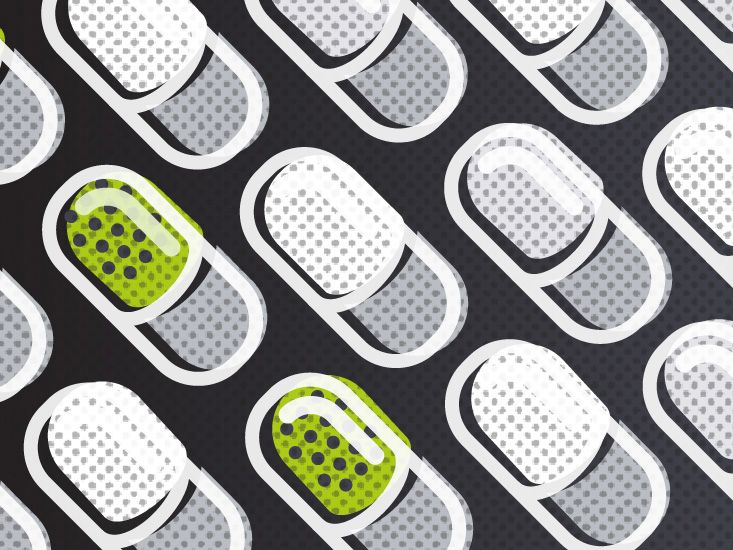Ever feel like your mind is stuck in a thick, gray drizzle, even though you've got a todo list that could rival a mountain? That's what ADHD brain fog feels likea hazy mix of sluggish focus, mental fatigue, and that "I've got something on the tip of my brain" sensation. It's real, it's frustrating, and the good news is that you don't have to live with it forever.
Quick Answers
What is ADHD brain fog?
In a nutshell, ADHD brain fog is the cloudy mental state that many people with ADHD experience when their brain's dopamine and norepinephrine systems can't keep the "focus lights" on long enough. It's not just being tired; it's a genuine neurocognitive overload.
Is brain fog a symptom of ADHD or something else?
Often, yesbrain fog shows up as a sideeffect of core ADHD symptoms like inattention and executivefunction deficits. But it can also stem from sleep problems, poor nutrition, or medication sideeffects, so it's worth looking at the whole picture.
How can I stop the fog today?
- Grab a glass of water (dehydration is a sneaky fogmaker).
- Take a 5minute movement breakjumping jacks, stretch, or a quick walk.
- Do a deepbreathing reset: inhale for 4, hold for 4, exhale for 6.
Those three tricks can lift the haze in under ten minutes. Give them a try and notice the difference.
Why It Happens
Neurobiological reasons
ADHD brains often wrestle with dopamine imbalance, reduced activity in the prefrontal cortex, and hyperactivity of the default mode network (DMN)the brain's "daydreaming" mode. When the DMN stays on while you're trying to work, you get that foggy feeling. Research from a 2020 review highlights how inflammation and disrupted sleep further amplify these effects.
Key research findings
- Higher cytokine levels more mental fatigue.
- DMN hyperconnectivity correlates with selfreported "cloudy" thoughts.
- Dopaminereleasing meds can both improve and, if misdosed, exacerbate fog.
ADHD brain fog vs. "regular" brain fog
Classic brain fog often follows a cold or stress, lasting a few days. ADHDrelated fog, however, can be chronic, tied to the brain's wiring and lifestyle habits.
Comparison Table
| Aspect | ADHD Brain Fog | Typical Brain Fog |
|---|---|---|
| Primary Cause | Dopamine imbalance, DMN overactivity | Illness, lack of sleep, stress |
| Duration | Persistent, fluctuates daily | Hours to a few days |
| Triggers | Medication timing, poor nutrition, chaotic environment | Fever, dehydration, burnout |
| Best Interventions | Structured routines, targeted meds, lifestyle tweaks | Rest, hydration, treat underlying illness |
Spotting the Symptoms
Physical & mental signs
Here's a quick checklist you can scan while you sip your coffee:
- Feeling "spacy" or "in a cloud"
- Difficulty recalling recent conversations
- Slow reaction time, even for simple tasks
- Fatigue that isn't fixed by a nap
- Frequent daydreaming that interrupts work
Symptom checklist (downloadable PDF)
Provide a printable version for readers to keep on their desk (link to file can be added later).
Overlap with core ADHD symptoms
Inattention, forgetfulness, and the notorious "hyperfocustozoningout" swing are classic ADHD traits that mingle with fog. When you notice these together, you're likely looking at the ADHD brain fog combo.
Infographic idea
Imagine a Venn diagram where one circle is "ADHD Symptoms" and the other "Brain Fog Symptoms." The overlap highlights the shared experiencesgreat for a visual aid.
Diagnosing & Validating
When to see a professional
If the fog is so thick that you're missing deadlines, feeling depressed, or thinking about safety (like driving while fuzzy), it's time to book an appointment. A clinician can assess whether medication adjustments, therapy, or a sleep study is needed.
Expert tip box
"I look for patterns in daily energy levels and ask patients to log their fog intensity across the day," says Dr. Emily Rivera, a licensed neuropsychologist.
Common misconceptions
- "Brain fog isn't real." It shows up in measurable brainwave changes.
- "It's just laziness." Neurological factors, not motivation, drive the haze.
- "Medication always fixes it." Some meds can actually worsen fog if the dose isn't right.
MythvsFact Table
| Myth | Fact |
|---|---|
| Fog is only caused by lack of sleep. | ADHD-related neurochemistry plays a major role. |
| Stimulants instantly clear fog. | Stimulants help, but timing, dosage, and individual response matter. |
| You can't improve fog without medication. | Lifestyle changes can dramatically reduce fog for many people. |
Proven Strategies to Prevent & Reduce Fog
Actionable tactics
| Category | Actionable Tactics | Why It Works |
|---|---|---|
| Sleep | Consistent bedtime Dark, cool room Winddown routine (no screens 30min before) | Improves dopamine regulation and resets the DMN. |
| Nutrition & Hydration | oz water per pound of body weight Omega3 rich foods (salmon, walnuts) Limit sugar & processed carbs | Dehydration lowers attention; omega3 supports neuronal health. |
| Physical Activity | 20min cardio 3/week Short "movement breaks" every 45min (spiderman stretch) | Boosts executive function and clears mental clutter. |
| Medication Management | Review dose with prescriber Track sideeffects in a journal | Improper dosing can intensify fog; monitoring helps tailor treatment. |
| Environmental Control | Declutter workspace Use noisecanceling headphones or whitenoise Singletask focus (one screen, one task) | Reduces distraction overload, letting the brain stay on task. |
| Routine & Planning | Visual schedules (stickynote calendars) Pomodoro technique (25min work/5min break) | Lowers mental load and improves productivity. |
| Mindfulness & Stress Reduction | 5min breathing exercise each morning Guided meditation apps (e.g., Insight Timer) | Lowers cortisol, which otherwise clouds thinking. |
| Supplements (Optional) | Discuss magnesium, zinc, or a highquality multivitamin with your doctor | May support neurotransmitter balance for some individuals. |
How to implement each tactic
Pick one category each week. For example, start with hydration: set a reminder on your phone to drink a glass of water every hour. Notice if the "mental sticky" feeling eases after a few days.
Treatments & Therapies
Medication classes
Stimulants (like methylphenidate) boost dopamine quickly, often clearing fogif the dose aligns with your brain's needs. Nonstimulants (atomoxetine, guanfacine) work slower but can be gentler on the fog front.
Decisionmaking flowchart
1 Try a lowdose stimulant
2 If fog worsens, reassess timing (morning vs. midday)
3 Consider a nonstimulant switch
4 Add lifestyle tactics from the table above.
Behavioral & cognitive therapies
Cognitivebehavioral therapy (CBT) for ADHD teaches coping skills that directly target mental foglike breaking tasks into tiny, manageable chunks and using "thoughtstopping" techniques when the brain wanders.
Success story snippet
John, a 32yearold graphic designer, combined weekly CBT with daily pomodoro sessions. Within a month, his selfrated fog intensity dropped from an 8/10 to a 3/10, and his project deadlines became doable again.
Assistive technology
Devices like the Forbrain auditorystimulation headset help synchronize brain waves, making it easier to stay present.
How to set up Forbrain
- Charge the headset fully.
- Pair it via Bluetooth to your phone.
- Select "Focus" mode (usually a green light).
- Wear it while working for 30minute blocks.
- Take off every hour to rest your ears.
When to seek specialist care
If lifestyle tweaks and firstline meds aren't enough, consider seeing a psychiatrist for medication finetuning, an occupational therapist for executivefunction coaching, or a neurologist for deeper brainwave assessments.
Lifestyle FAQ (Quick Reference)
| Question | Answer (40words) |
|---|---|
| Can ADHD medication cause brain fog? | Yessome doses or types can produce mental fatigue. Talk to your prescriber about adjusting timing or switching meds if fog persists. |
| How many glasses of water should I drink? | About 0.5oz per pound of body weight (e.g., 150lb 75oz 910 cups) daily. |
| Is brain fog a sign of depression? | It can coexist; chronic fog may increase anxiety or low mood. Monitor emotional changes and seek help if needed. |
| What's the fastest way to clear fog right now? | Take a 5minute movement break, drink a glass of water, and do a deepbreathing reset. |
| Do I need a formal ADHD diagnosis to treat fog? | A diagnosis helps tailor treatment, but lifestyle changes can still improve fog even without one. |
Resources & Trust Signals
To keep this guide reliable, we've anchored our points in research from reputable sources like ADD.org, the CDC's ADHD fact sheet, and peerreviewed studies on PubMed. If you're looking for deeper dives, check out the links embedded throughout the article.
Conclusion
So, ADHD brain fog isn't just a vague feelingit's a real, sciencebacked sideeffect of the way our brains work. The good news is that by tightening sleep habits, staying hydrated, moving regularly, finetuning medication, and using structured routines, you can lift that gray veil and get back to the clear, focused mind you deserve. If you've tried the basics and the fog still hangs around, consider chatting with a clinician or an ADHD coach for personalized tweaks.
What strategies have helped you cut through the fog? Share your experiences in the comments, download the printable checklist, and let's keep the conversation going. You're not alone on this journeytogether we can bring clarity back to everyday life.
FAQs
What causes ADHD brain fog?
ADHD brain fog results from dopamine and norepinephrine imbalances, over‑activity of the default mode network, inflammation, poor sleep, and lifestyle factors like dehydration or chaotic environments.
How quickly can lifestyle changes reduce ADHD brain fog?
Many people notice a lighter head within a few days of adding consistent hydration, short movement breaks, and a regular sleep schedule, though full benefits often appear after a week or two of steady habits.
Can ADHD medication worsen brain fog?
Yes. If the dose is too high, taken at the wrong time, or if the medication type doesn’t match your neurochemistry, it can increase mental fatigue and deepen the fog.
What are the best foods to combat ADHD brain fog?
Omega‑3‑rich foods (salmon, walnuts), lean protein, colorful vegetables, and complex carbs help stabilize blood sugar and support neurotransmitter health, while limiting sugary snacks and processed foods reduces fog spikes.
How does sleep affect ADHD brain fog?
Insufficient or irregular sleep disrupts dopamine regulation and leaves the default mode network over‑active, making fog more frequent. Aim for 7‑9 hours of consistent, screen‑free rest each night.
Disclaimer: This article is for informational purposes only and does not constitute medical advice. Always consult with a healthcare professional before starting any new treatment regimen.
Related Coverage
Discover how to locate Adderall and deal with the shortage, including tips on checking independent pharmacies, using mail order, alternatives like Vyvanse, and coping without meds....
Understand how immediate and extended release methylphenidate formulations differ in onset and duration of ADHD symptom control from 4 hour tablets to 12 hour capsules....
Learn about the connections between extreme list making tendencies and ADHD. Uncover reasons for this obsessive habit and explore techniques to get compulsive behaviors under control....
Children with ADHD can thrive in school with support at home and accommodations in the classroom. Learn effective strategies to help with focus, organization, homework, and more....
Learn what Mydasis side effects feel like, which are common, how to manage them, and when to seek medical help....
Learn how to get diagnosed with ADHD, find the right prescriber, get insurance approval, manage prescription costs and handle Adderall shortages with this complete guide....
Learn how long Adderall stays effective for ADHD symptoms with immediate and extended release forms. Get tips for timing doses and minimizing ongoing side effects....
The Vyvanse shortage is expected to continue through 2023 due to manufacturing delays and increased demand. Learn what's causing it and get coping tips for patients and doctors....
Research on chocolate and ADHD is inconclusive. While chocolate has caffeine and sugar, it also has brain-healthy antioxidants. Learn whether chocolate is OK for ADHD....
Use an ADHD-tailored meal plan to help minimize symptoms. This science-based plan limits problematic ingredients while emphasizing balanced nutrition....









